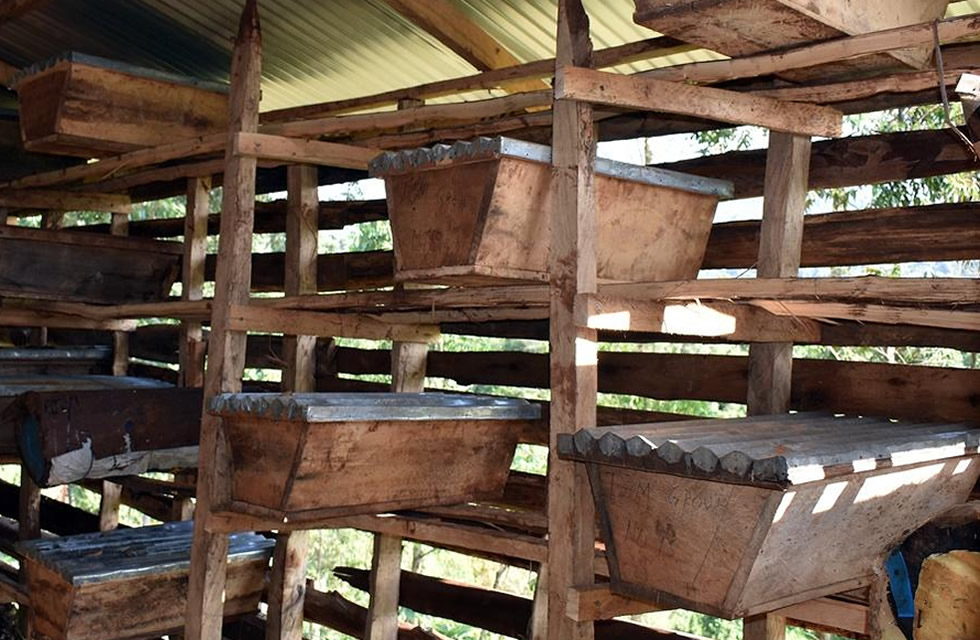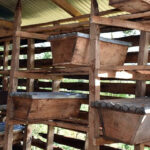On 20th May, 2020, Rwenzori Mountains National Park in Queen Elizabeth Conservation Area distributed 300 bee hives as part of its outreach program with frontline communities that surround the park. The hives were given to 30 organised community groups in the five districts that neighbour Rwenzori Mountains National Park. The beneficiary districts included Kasese, Bunyangabo, Kabarole, Ntoroko and Bundibugyo witnessed by representatives from their respective local council and opinion leaders. The beneficiary communities will set up the apiaries as livelihood projects to improve household income. This will further reduce illegal activities within the park as people’s incomes will be diversified.
The beehive initiative was specifically welcomed by communities because it benefits many groups of people as opposed to individuals. Additionally, it is easy to monitor and determine misuse by a given community member. Previously, the park had supported other alternative projects that included goat rearing and piggery but the projects had been misused by beneficiary families. Most of the animals were prematurely sold off and no value for money realised with individuals claiming the goats/cows had naturally died or got stolen.
Apiaries have therefore over time proved to offer more tangible benefits with most communities adjacent to the national park appreciative of them. Apart from money they generate as a result of harvesting honey, they also act as a deterrent to elephants averting a serious Human Wildlife Conflict issue. It is therefore hoped that with more beehives distributed, UWA will get in touch even more with its host communities who in turn will appreciate the value of wildlife conservation. This will improve on the relationship between the park and frontline villages. In 2019, Rwenzori Mountains National Park alone distributed revenue sharing funds amounting to UGX 115,000,000 (One Hundred and Fifteen Million Uganda Shillings) as a result of tourism. Such benefits will only be attained when community protect wildlife for tourism.


